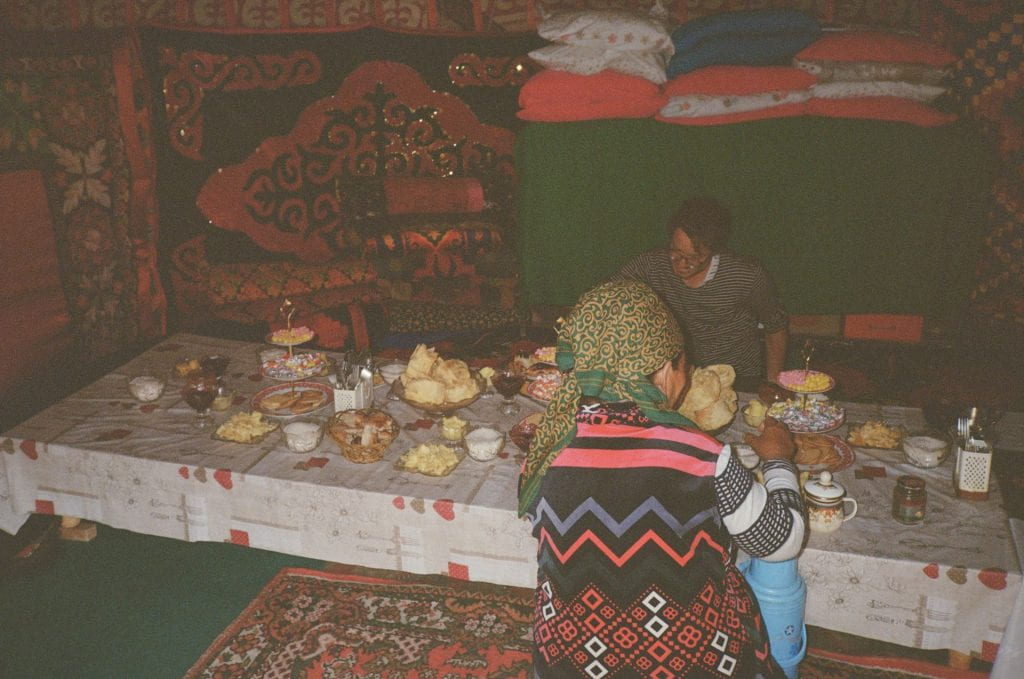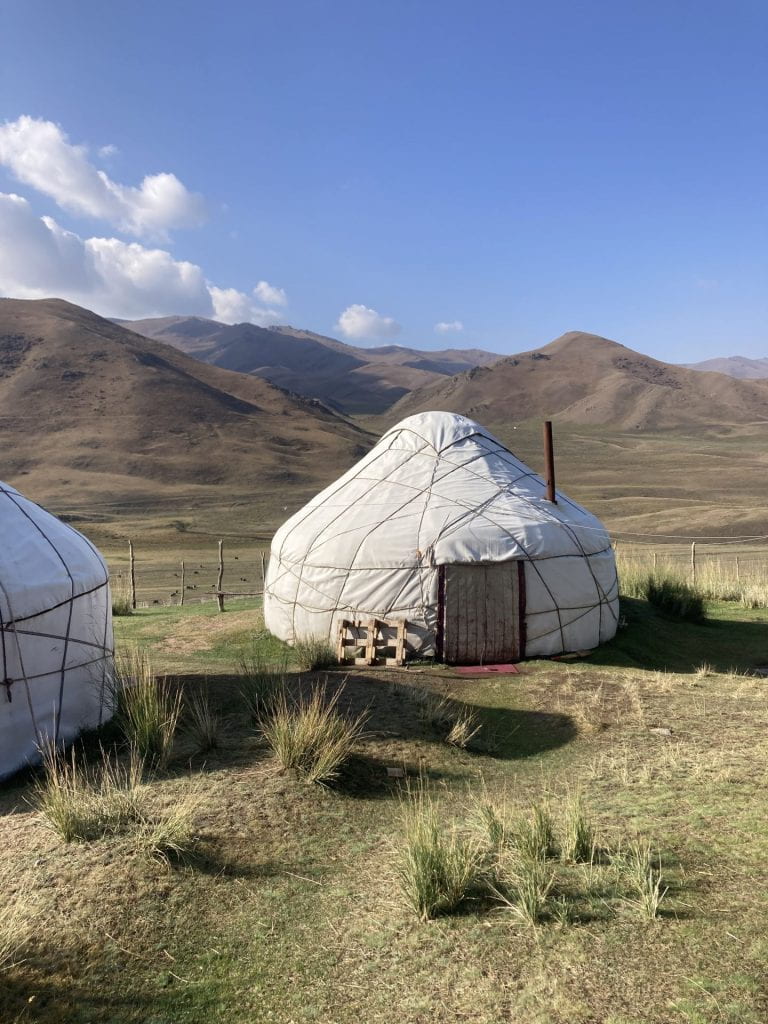
Undergraduate Series: an Interview with Lex Durham-Arnold, Recipient of the Australian Global Languages Scholarship
Felicia Lee
Lex Durham-Arnold is an undergraduate student at the Faculty of Arts majoring in Criminology and Russian Studies. He is also concurrently undertaking a Diploma of Languages (French). He has recently received the Australian Global Languages Scholarship and travelled to Kyrgyzstan for an exchange programme with the London School of Languages and Cultures and spoke to the academics at the University of Central Asia about the sociological background of Kyrgyzstan and its history.
Felicia interviewed Lex about his experience in Kyrgyzstan and his reflection on the scholarship application process and the trip in general.
***
Hi Lex, could you start off by sharing a little about yourself?
I’m Lex and I’m in my final year of my undergraduate. I’m currently doing a double major in Criminology and Russian Studies, and recently I enrolled in the Diploma in Languages (French) as well. I grew up in Switzerland, so I spent eight years in Switzerland, and that taught me, thankfully, French, but also what it means to go around the world and kind of set yourself up in different places around the world.
In my free time, I go for overnight hikes with my friends and participate in book clubs with like-minded people. I have also done an internship at the Palo Alto Networks for a semester.
Wow, your majors are vastly different from each other! Any reason for taking up these majors and the Diploma in Languages (French)?
Well, I was always interested in crime, just how it occurs or the psychological motivations of the criminals. It was really interesting to learn about the theories to explain why crime occurs. Can you just look through the pinhole through different theories pertaining to the different crimes? That is really fun!

For Russian, that’s always the weird one because everyone always asks if I have a Russian background, but no, I have no background in the language at all. I think the biggest thing is I’m quite a nerd for history; I love Russian history. Also, growing up, I held stereotypes of the Russian culture thanks to media portrayal. It was interesting to understand that was my perception of a country of 144 million people. So I thought learning the language would be a great insight for me. I think my main goal was I wanted to go to a Russian-speaking country and speak with someone who never spoke English and only communicate with them in French or Russian. That was accomplished during my trip to Kyrgyzstan, which we would talk about more later.
Finally, as for French, I learnt and spoke French back in Switzerland so I hope to maintain the language. I’m hoping that if I continue learning the language back in Australia, I will still have an avenue to speak the language.
***
Looks like you were really committed to speaking Russian, which I presume was what prompted you to embark on an exchange trip to Kyrgyzstan. Tell us more about your experience there!
One reason I chose Kyrgyzstan out of many other places that I could do was because I was always interested in Central Asia. Central Asia is a huge area that doesn’t get talked about a lot. Also, I was doing some research and I saw that Kazakhstan and Kyrgyzstan still use Russia as their official language, which fits my goal to complete my major in Russian studies. However, I’ve heard about Kazakhstan before, and I was like, “What is this place, Kyrgyzstan?” So I looked it up and saw that people call it “Switzerland of Central Asia”, because it’s about the same size and it’s got mountains like the Alps, but they’re about double the height because their mountain range is at the beginning of the Himalayas. Then I started emailing the universities and managed to successfully enrol in the London School of Languages and Culture there.

During that time I received subject credits for the completion of my major in Russian Studies. But not only that, I thought I did have a responsibility to understand and spread knowledge about this beautiful place. In all my Zoom calls with the school’s administrative team, they always go, “You’re the first Australian I’ve ever met or spoken to.” I met a lot of people from the University of Central Asia and spoke to them about the sociological background of Kyrgyzstan and her history. Besides that, I did a lot of volunteer work as well.
That sounds really fascinating. What sort of volunteering work did you do?
I volunteered at a not-for-profit community where they go to the outskirts of Bishkek, the capital of Kyrgyzstan, and they talk to children about air pollution and the environment. Unfortunately, Bishkek is this rapidly urbanizing city and they have this huge landfill that was only meant for a population of 400,000. But now their population is about 1.2 million so they’re not sure where to place the landfill. They’ve got some of the worst air pollution in the world. It was really interesting talking to these kids not only to practise my Russian but also to just hear their side of the story.
***
You did something meaningful and fulfilled your goal of practising speaking Russian to the locals at the same time. That’s great, killing two birds with one stone! So you were supported by the Australian Global Languages Scholarship. How did you come across it and how did you apply for it?
It was a really easy process. Obviously, it took some mental effort to have my kind of thesis of how I’m going to promote my motivations. All I needed were the institution letters from the Head of the Russian Studies department. I spoke to a lot of my friends about it, and it was surprising that many of them hadn’t heard about it. It was a really smooth experience applying for it.
I was given around $6,500 for the Australian Global Languages Scholarship, and another $2,000 for the Mobility Awards. Honestly, there are so many opportunities though they are hard to find. Just look for them!
How has the overseas trip changed your life in general?
I think the biggest thing I learned is how to be self-sufficient. I think I’ve just become quite proud of myself that I could embark on this journey on my own. I just felt so proud of myself that I actually got over there with independent planning and of course, with the help of the university. I am very grateful that the university gave me a lot of information about travel warnings and insurance. As a result of this trip, I’m quite interested in a lot of solo travelling now because I know it doesn’t really matter where I go, I can feel quite confident and stable in a new place.

It has also changed how I see the world, how I see my privilege, and how lucky I am to be in Australia. Yeah, the benefits I receive are just incredible. Kyrgyzstan is a country with a lot of politics and history, so I am quite grateful to be there.
***
I believe your experience in Kyrgyzstan and your dedication to immerse yourself in a culture to learn a language is going to be very motivating for many aspiring students hoping to acquire new languages. Thank you for speaking to me, Lex! It has been wonderful!
Thank you, Felicia.
The Australian Global Languages Scholarships offered by the Faculty of Arts is open. The deadline for submission is 15 April 2024 this year. Find out more here.